How to Super Insulate a Mobile Home?
Mobile home insulation is crucial for maintaining comfort and energy efficiency. Mobile homes have thin walls that allow for rapid heat transfer, resulting in discomfort and high energy bills. Proper insulation provides several benefits, including improved energy efficiency, enhanced comfort throughout the year, moisture control to prevent mold growth and noise reduction. Neglecting insulation in mobile homes can have serious consequences, such as outrageous energy bills, discomfort, and mold problems.

Mobile homes have various insulation options, including spray foam insulation, batt insulation, blown-in insulation, and rigid foam insulation. Spray foam insulation is considered the best option due to its superior thermal performance, air-sealing properties, and moisture control capabilities. However, it is more expensive than other insulation types. Batt insulation is affordable and easy to install, while blown-in insulation is effective for hard-to-reach areas. Rigid foam insulation is commonly used for underfloors and exterior walls due to its thermal and moisture resistance.
The recommended insulation levels for different areas of a mobile home vary. Mobile home underbelly insulation should have an R-value of R15-R30, floor insulation range from R20 to R30, wall insulation between R11 and R19, and roof insulation range from R22 to R40. The cost of mobile home insulation depends on factors such as the area being insulated, the type of insulation chosen, and the project size.
In this article, we discuss the importance of mobile home insulation and explore the different types of insulation for mobile homes. Furthermore, we will also outline the recommended insulation solution for different areas in mobile homes.
Why Insulation Matters For Mobile Homes?
Insulation matters for mobile homes because mobile homes have thin walls that make heat transfer easy. Heat loss occurs rapidly, making the mobile home uncomfortable during winter or summer. Mobile home insulation creates an extra layer of protection that prevents heat loss. The benefits of Mobile home insulation include the following:

1. Energy Efficiency
Insulating a mobile home reduces the amount of energy consumed significantly. Mobile home insulation helps to reduce heat loss through holes and cracks. This reduces the energy the HVAC system expends to keep your space warm and comfortable.
2. Enhanced Comfort
Comfort all year round is one of the major benefits of mobile home insulation. You can escape the weather in winter or summer by staying in a well-insulated mobile home.
3. Moisture Control
Moisture control is important in mobile homes as it eliminates the risk of condensation, mold growth, and mildew. Insulation creates a barrier against moisture infiltration and prevents vapor from entering your roof, walls, etc. This also helps to maintain the structural integrity of your mobile home.
4. Noise Reduction
Noise reduction is another benefit of mobile home wall insulation. Insulation provides soundproofing ability by absorbing sound waves. In noisy environments, insulation helps to block out the noise coming from in or out of your mobile home.
What Kind of Insulation Do You Use In A Mobile Home?
Different kinds of insulating materials can be used for mobile home insulation. Cost, r-value, insulation performance, and budget are important factors to consider when choosing the right insulation for mobile homes. In this section, we will take a look at common insulation types that can be used in a mobile home:
1. Spray Foam Insulation
Spray foam insulation is considered the best insulation for mobile homes. Spray foam insulation is applied as a liquid and expands to create an air-tight seal. It offers excellent thermal performance and can be used on walls, floors, and roofs.

Spray foam insulation can also be used in insulating older mobile homes and hard-to-reach places like crawl spaces. However, spray foam insulation is expensive and requires proper installation. The benefits of spray foam insulation include the following:
- Superior insulation performance with a high R-value of R6 to R7.
- Reduced air leakage, minimized drafts, and improved energy efficiency.
- Enhanced moisture control and prevention of condensation issues.
2. Batt Insulation
Batt Insulation is a common insulating material made from fine glass fibers or mineral wool. Batts insulation is made into rolls or batts and designed to fit into wall studs, roofs, and floors. Batts insulation is easy to install and relatively affordable.

Batts insulation comes in various thicknesses, which determines the R-value. Typically, batt insulation provides an R-value within the range of R3.1 to R4 per inch thickness. They are suitable for thermally insulating both interior and exterior spaces.
The benefits of using batts insulation for mobile home insulation are;
- An easy installation process for DIY enthusiasts.
- Wide availability and affordability.
3. Blown-In Insulation
Blown-In insulation is a type of insulation that involves filling different parts of a building with good insulating material. The insulating material is blown into different areas, making it easy to insulate hard-to-reach areas. The materials commonly used for blown-in insulation are recycled papers, styrofoam pellets, and loose fiberglass fibers.

Blown-in insulation is expensive because it is done by professionals and requires the use of a mechanical blower. It is environmentally friendly and offers an R-value of R3.5. Blown-In insulation offers the following benefits for mobile homes:
- Excellent coverage and ability to reach areas that are challenging to access.
- Effective in filling irregularly shaped or non-standard cavities.
- Enhanced resistance to air infiltration when properly installed.
4. Rigid Foam Insulation
Rigid foam insulation is a common type of insulation used for insulating mobile home underfloors and exterior walls. It is made from board-like materials, and they come in different thicknesses. The thicker the board, the higher the r-value. The properties of rigid foam insulation include:

- Excellent thermal resistance and moisture resistance properties.
- High compressive strength, providing structural support.
- Resistant to mold, rot, and pests.
What is the R-rating For Mobile Home Insulation?
R-rating for mobile home insulation represents the insulation’s thermal resistance. The recommended mobile home insulation R-value depends on factors such as climate, insulation location, and local building codes. That said, a well-insulated mobile home should have an R-value within the range of R11 and R40.
Generally, different areas in your mobile home require a minimum recommended R-value. For instance, mobile home underbelly insulation r-value should be between R15 - R30. The R-rating for mobile home floor insulation should be within the range of R20 to R30. The walls of mobile home insulation should be between R11 and R19, while the roof should range between R22 to R40.
Recommended Mobile Home Insulation Solutions
There are important areas in a mobile home that require proper insulation. Proper insulation of these areas improves a mobile home's overall comfort and energy efficiency. In this section, we will discuss the recommended mobile home insulation solutions for different parts of a mobile home:
1. Mobile Home Underbelly/Crawl Space Insulation
Mobile home underbelly insulation is as important as insulating any other part of your mobile home. The underbelly or crawl space is the space between the ground and the floor. The crawl space of mobile homes houses the plumbing system, making it prone to mold growth. The best insulation for mobile home crawl space insulation is spray foam.

Spray foam insulation for mobile homes creates a barrier against moisture and air infiltration. Insulation under mobile homes helps in resisting mold and rot while keeping the mobile home warm and comfortable. If you want to know how to insulate water pipes under a mobile home with spray foam insulation, you can use either a closed-cell or open-cell spray foam.
2. Mobile Home Roof Insulation
Mobile home roof insulation reduces heat loss through the roof. An unheated mobile roof cause high energy consumption as heated air escapes through the roof. Insulating mobile home roofs is essential to improve energy efficiency and overall comfort.

There are several insulating materials that can be used for mobile roof insulation. Batts insulation can be used, but it does not do well with moisture. However, spray foam insulation is popular for mobile home roofs because of its superior air-sealing abilities. Spray foam insulation is durable and will effectively minimize heat transfer, reduce noise, and save energy costs.
3. Mobile Home Wall Insulation
Mobile home walls are another important area that must be adequately insulated. It accounts for a large percentage of any building. Most mobile home walls are usually pre-insulated, but the insulation is thin with low R-values.
Blowin-in insulation is a common insulation used for mobile home wall insulation because of its minimally invasive technique. Nevertheless, spray foam is referred to as the best insulation for mobile home walls.
4. Mobile Home Floor Insulation
Walking on an unheated floor during winter and summer is very uncomfortable. Cold spots and drafts are some of the reasons that make mobile home floors uncomfortable. Mobile home floor insulation helps to keep the floor warm all year by minimizing heat loss.
Regarding mobile home floor insulation, spray foam offers more than other insulation types. Spray foam insulation is applied to the floor joists, creating a layer of protection for mobile homes. Batt insulation is also widely used for mobile home floors by snugly the batts between the floor joists.

5. Mobile Home Window And Door Insulation
Windows and doors have tiny spaces around them that cause air leakage. There is no specific insulation used for mobile home window and door insulation. However, there are different ways that can be employed to eliminate drafty windows and doors.
Caulking is an effective way to seal air leaks and avoid drafty windows. Get quality caulks from krakenBond. Asides from caulking, you can protect your windows and doors by inspecting weatherstripping and treating windows.
6. Water Pipe Insulation Under A Mobile Home
Mobile home water pipes are often neglected during insulation, causing them to freeze during the winter. Freezing water pipes can cause problems to your plumbing system. It is important to learn how to insulate pipes under mobile homes to protect them from freezing. Using pipe insulation sleeves or wraps made of foam or fiberglass will protect your water pipes.
How Much Does It Cost to Insulate a Mobile Home?
On average, insulating a mobile home would cost $500 to $7000. The cost to insulate a mobile depends on several factors, such as the area insulated, the type of insulation, and the size of the project. For instance, the cost to insulate under a mobile home using spray foam ranges between $1000 to $4500. On the other hand, mobile home underbelly insulation using fiberglass will cost between $800 to $1700.
Conclusion
In conclusion, mobile home insulation is necessary if you value comfort. Asides from the comfort you enjoy, mobile home insulation saves money, plus other benefits such as noise reduction, moisture control, improved indoor air quality, etc.
Mobile home insulation types include spray foam, batts, rigid, and blown-in insulation. Without a doubt, spray foam is the best insulation for under-mobile homes. Unlike batts insulation which is relatively affordable, spray foam insulation is expensive but offers better insulating ability and moisture resistance.
Important areas in your mobile home must be insulated, such as the crawl space, walls, floors, water pipes, windows, and doors. The recommended insulation solutions for these areas are different. For instance, spray foam is ideal for mobile home belly insulation. For your mobile home insulation, always go for quality spray foam like Fast Coat Product.
FAQs About Mobile Home Insulation
Can You Use Spray Foam Insulation Under A Mobile Home?
Yes, spray foam is the best for your mobile home underbelly insulation. It protects the crawlspace by creating a barrier that prevents moisture buildup, mold growth, and condensation.
What Is The Best Insulation For Under A Mobile Home?
The best insulation for under a mobile home is spray foam insulation. Spray foam insulation under mobile homes offers more benefits and protection than other insulation types like batts insulation and blown-in insulation.
What Type Of Insulation Is Used Under A Mobile Home?
Batts, rigid foam, spray foam, and blown-in insulation are common insulation used in a mobile home. Batts insulation is affordable but susceptible to moisture. This makes spray foam insulation the ideal option for areas prone to water, like under a mobile home.
What R-Value Insulation For Mobile Home Floor?
The recommended R-value insulation for a mobile home floor should be between R20 - R30. The higher the R-value, the more resistance to heat loss.
What Is The Best Way To Insulate Mobile Home Walls?
The best way to insulate mobile home walls is to use spray foam insulation. Spray foam insulation is expensive, but it offers more benefits than other insulation types.
What Is The Cheapest Way To Insulate A Mobile Home?
The cheapest way to insulate a mobile home is to use batts insulation. It is also easy to install and durable. The drawback of using batts insulation is its high susceptibility to absorbing moisture.
Author : Krakenbond Team


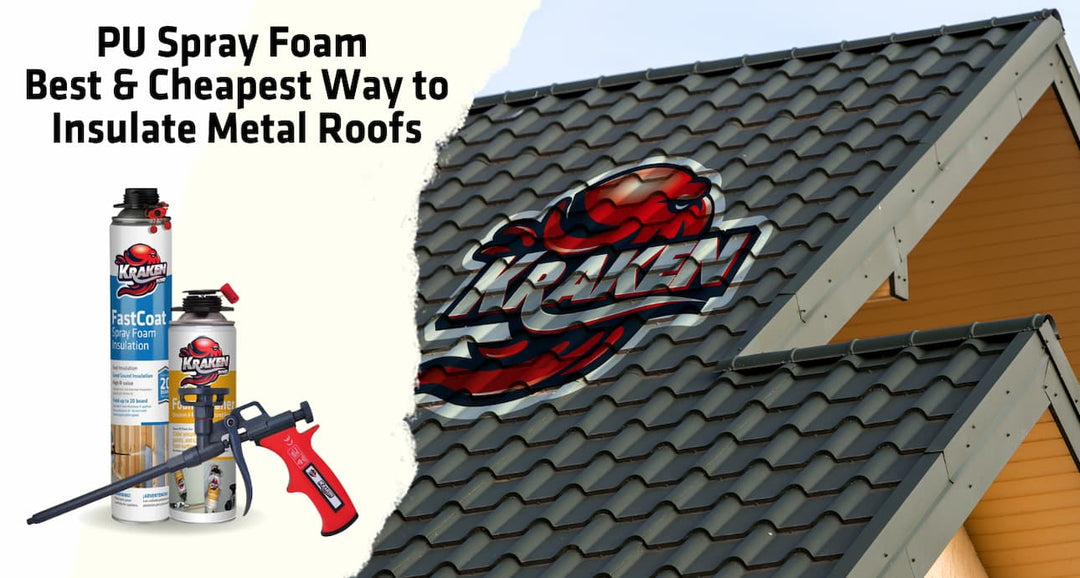

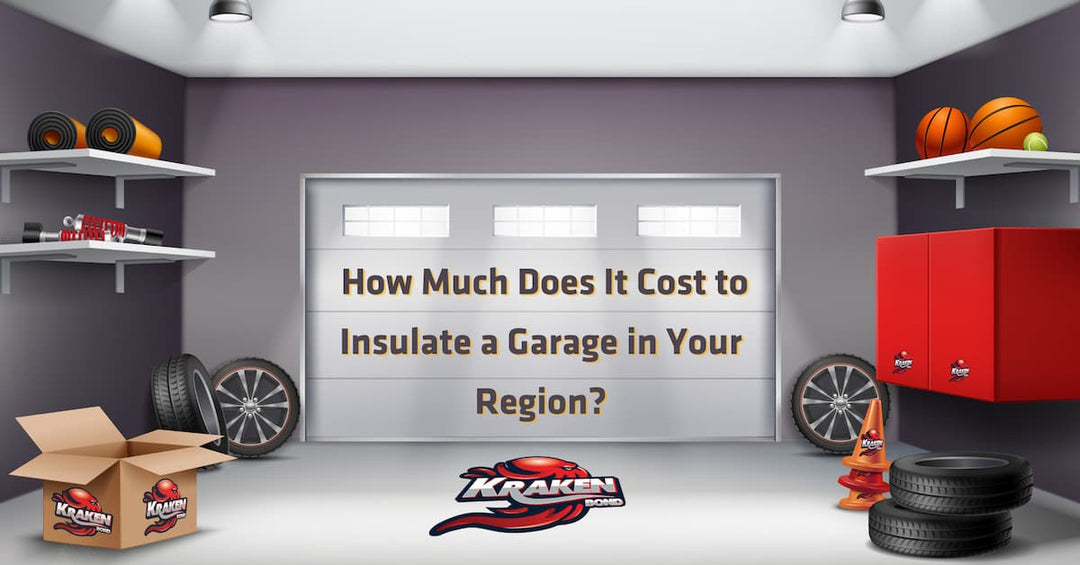


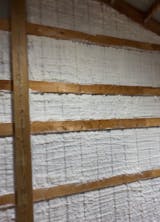
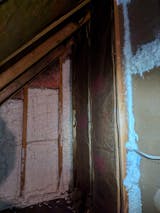
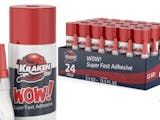





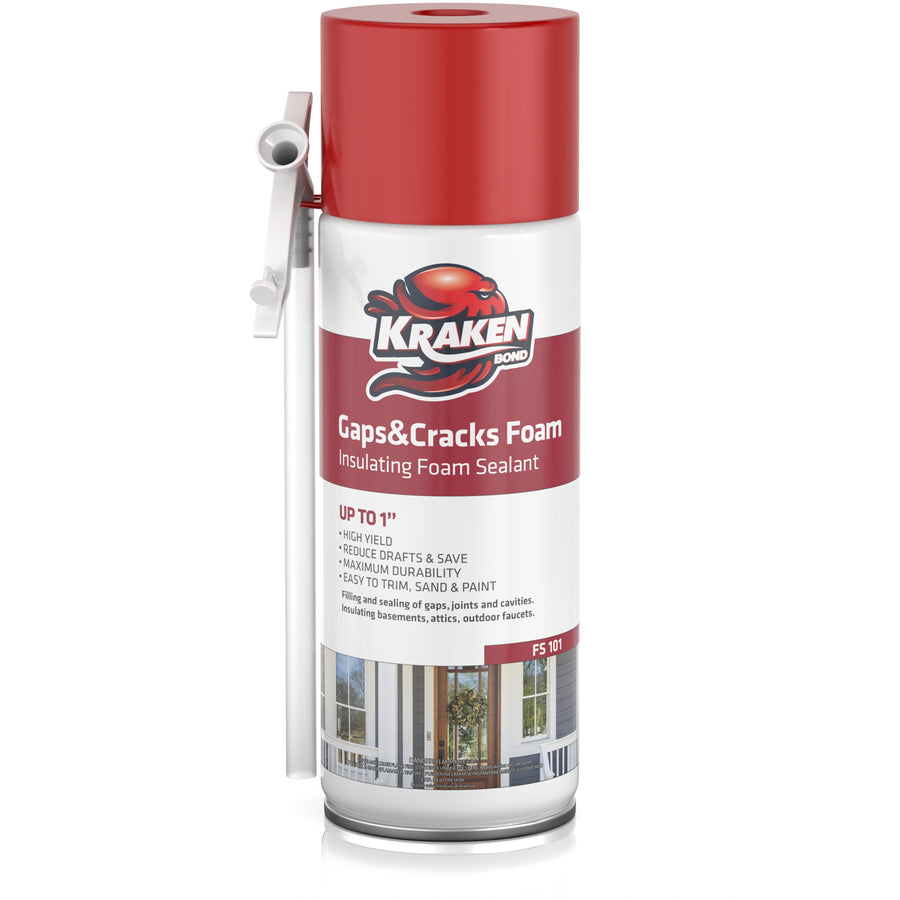
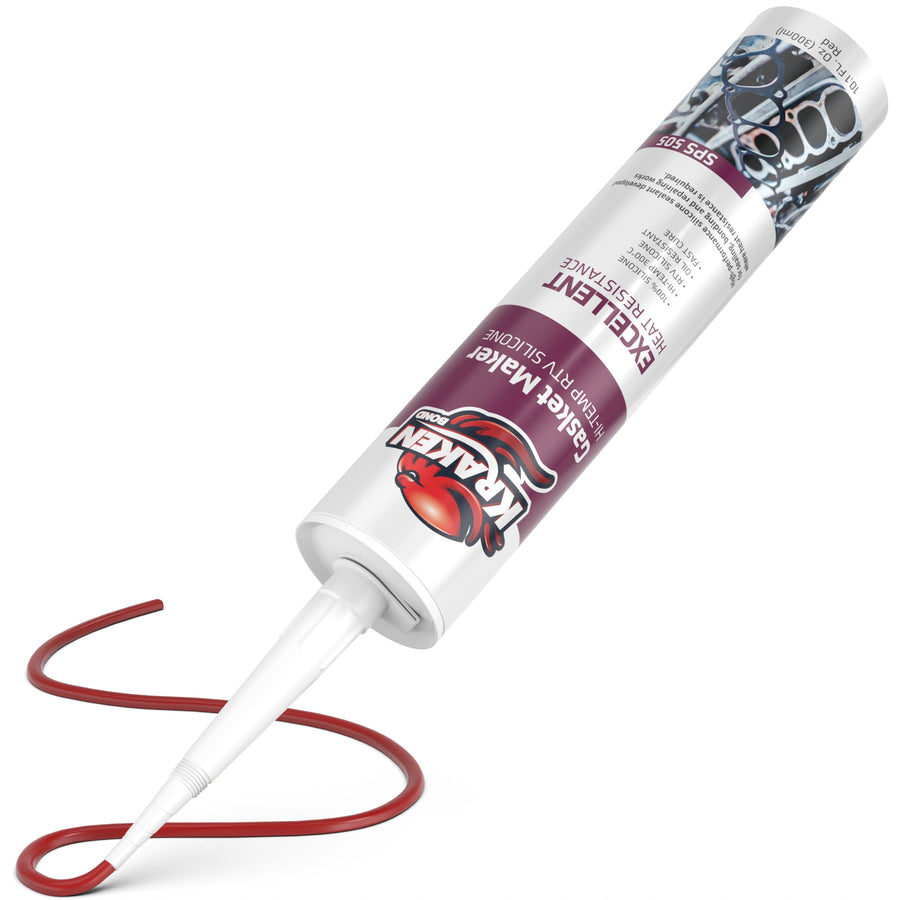
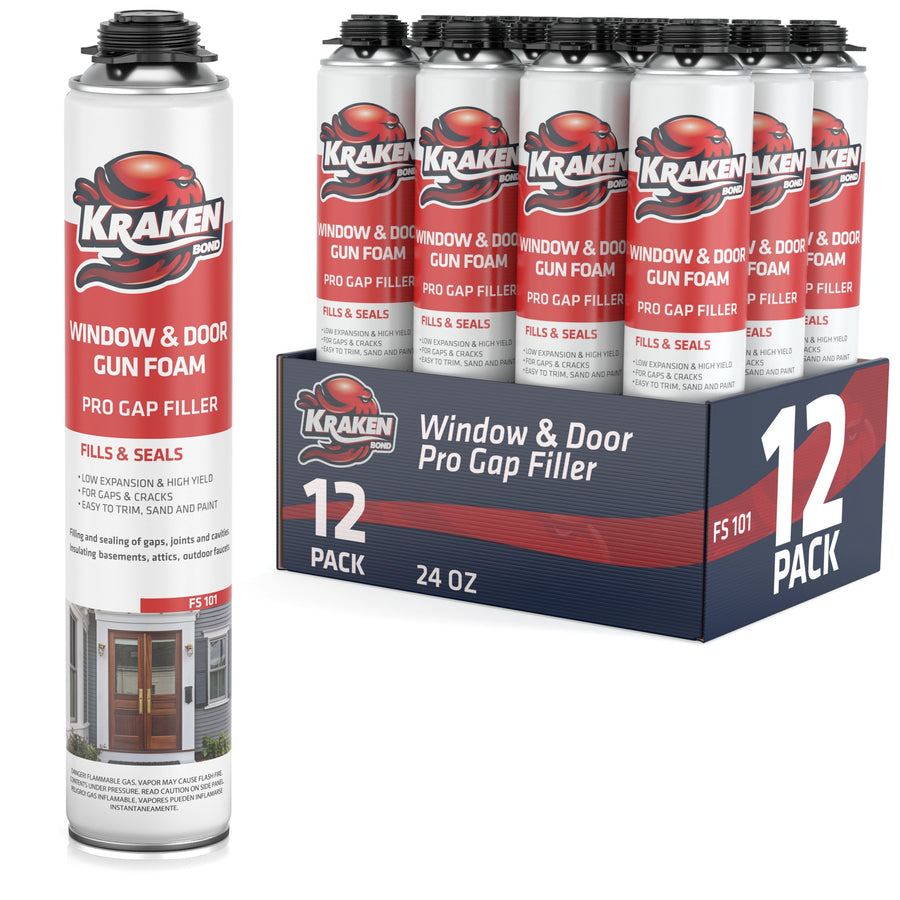
Leave a comment